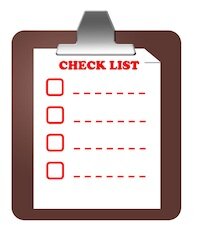I always say ‘I’ve been in recovery for…’ and then either go on to say ‘Just about two months’ if I’m talking about my eating disorder or ‘Just about seven years’ if I’m talking about alcoholism. I’m not sure why. I guess because I have come to believe that recovery is only recovery if I’ve been ‘clean’ for a length of time. I’m not sure why; I do not hold others to that standard. I’m pretty much alone in that category.
responsibility Archive
Give it to me straight, Doc

So, I have always sort of wondered if I were to be bipolar or something, though I’d never been formally diagnosed as such. To my mind and observation, I’ve always had a fairly… unstable emotional balance. High highs (occasionally) and low lows. I finally brought this up actively to my psychiatrist. I’m sick of it, and I want to know what’s wrong with me.
Naming Names – Putting Agoraphobia Into Words

I still don’t know how to talk about agoraphobia. I’ve been trying to figure out how to explain it to people since I was 16 years old, but I’ve been largely unsuccessful at putting it into words. I’ve mostly just stayed quiet about it and used vague “anxiety” euphemisms to describe why I can’t hang out / go to work / go to class / go grocery shopping / whatever, and have also spent a lot of time struggling to come up with “legitimate” ways to account for what I do with my time while NOT doing these things, especially since spending [lots of] time alone or in my “safe zones” is actually super positive for me. For almost 20 years, I’ve had no concept of how to talk about this enormous part of me that has both limited me in humongous ways and also shaped me into the wonderful weirdo that the people close to me know and love.
“Good” Victim, “Good” Self-Care

I would like to welcome the newest member of our writing team, Nikki. In her first post with us, she talks about the expectations placed on abuse victims/survivors. Thanks for sharing with us, Nikki!
There was a thing going around Tumblr that I can’t find now because I still don’t totally understand Tumblr, and it was about being a “good abuse victim.” How a “good victim” never gets involved with abusers again. “Good victims” have scars to prove their abuse, they get everything documented, they go right into therapy. They get fixed, they don’t get abused again. “Good victims” publicly call out their abusers… or wait, is it that “good victims” just talk about it with people close to them and work it out themselves and never make a scene? I don’t know, I never did it “right.” I marched around calling myself a Survivor for years which, to me, was like a “better victim,” a stronger one. Cuz when you’re a victim you’re weak and when you’re a survivor you’re strong and you did “good victim” properly and graduated. I said FUCK YOU to victimhood like it was bad. But in retrospect that’s saying there’s a right and wrong way to handle abuse, and that’s bullshit. As a repeat VICTIM of abuse I wanted to look strong even though repeat abuse makes people look weak. But fuck these hierarchies of who handles abuse the best. I am a victim of abuse and I’m surviving.
Mental Health and Firearms

In the wake of the waking nightmare brought to Smalltown America in the form of the murder of 20 young children and 6 educators in Newtown, CT, firearms and the right to possess them once again returned to America’s field of vision. With it, though, came a new focus on mental illness and how that played a role that horrible day. There is no doubt that the shooter in this case and too many others like it in the last two years (and throughout our history) were not mentally well. While very true, it’s also readily apparent that the right wing and the gun lobby are simply using this fact to shift blame and attention away from the guns.
Fighting for Responsibility of Ourselves

I would like to welcome the newest member of our writing team, Kaity Marie Baldwin. In her first post with us, she talks about taking responsibility for one’s own mental health. Thanks for sharing with us, Kaity!
It took me a long time to realize how lucky I was: a psychiatrist, a therapist, medication. All of these arranged in my life to provide the support I so desperately needed but wished I didn’t. Who wants to see a psychiatrist for the rest of their lives? Who wants to need therapy sessions? Support can sometimes be a reminder of why you need it, and it makes you feel so helpless.
My Partner With Borderline Personality Disorder (Hanners)

It is my pleasure to introduce the newest series, “My Partner With…” to QueerMentalHealth.org. Relationships can be a challenge for anyone, though they can be especially difficult when they are impacted by mental health issues. It is my hope that we can help others understand how to approach a partner’s mental health concerns. I’m starting this series off by talking about the issues that come up for myself and my partner, who has Borderline Personality Disorder.
If you were to get all your information about Borderline Personality Disorder by going to online support groups for partners of people with this condition, you would learn the following:
- Borderlines are always abusive
- Borderlines are always in denial
- Borderlines never take responsibility for their actions
- Borderlines will love you one minute, and hate you the next
- Relationships with borderlines are notoriously unstable
Group Therapy – Panic and Anxiety, Session 1

Trigger Warning: mention of rape, sexual assault
This is the first of an 8 week series reviewing panic and anxiety from a group therapy point of view. It is based on the group therapy services available through Langley Memorial Hospital. Feel free to follow along and answer the questions posted in each section.
Session 1: Exploring Anxiety Disorders
Crisis Checklist

Inspired by work people have done on madness maps and mental health first aid kits, I decided to make a checklist/flowchart to use when I am having a particularly hard time or am in crisis. It was a good process for me to make because it helped me to really think about what has helped me or caused me trouble in the past. I really like that we can make these sorts of tools for ourselves instead of relying on more general (often judgmental) dos and don’ts or advice from people who never know us as well as we know ourselves.
Trans Activism and Burnout

Over the past few years, I’ve worked hard to try to participate in activism that was relevant to my interests and identities, and also to recruit others into that activism. Trans folk, and trans women in particular, have long had an inclination and good reason to hide from society, to “go stealth” as we call it in the community. Societal pressures pushed us into a permanent closet that more closely resembled a mausoleum than the relative comfort of the closet. Our past was dead and our present remained cold and isolated, with few if any places we could reveal our history in a safe and confidential space.
- 1
- 2

